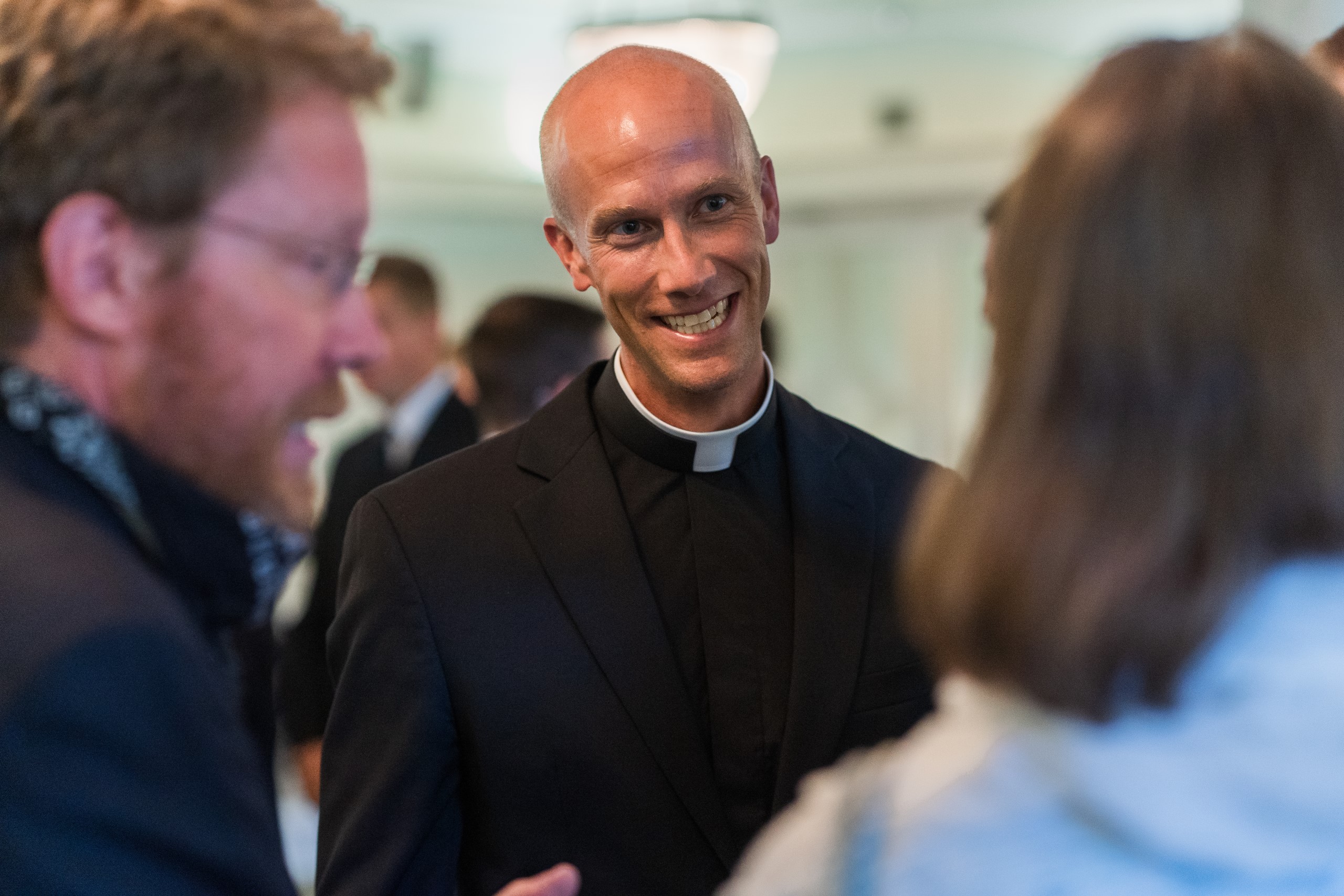
As Fr. John LoCoco, incoming Vocation Director for the Archdiocese of Milwaukee, explains it, vocation discernment is all about relationship and encounter — “first with the Lord,” he said, “and then with one another.”
When a parish considers how to promote the discernment of vocations within its community, the temptation is to focus on programming. And while hosting an event for young men or women and inviting a speaker can be an effective means of reaching certain portions of the population who are already tuned in to parish life, it’s not the only way to get all young people from the parish thinking about what the priesthood or religious life could mean to them.
Creating the opportunity for relationships and moments of encounter are what will truly move hearts, as it becomes increasingly clear that millennials and younger generations yearn for experiences that transform them, said Fr. LoCoco.
“I think what we’ve seen is a movement away from programming with a capital P to that investment in relationship. Ultimately, when a person enters seminary, there’s a relationship with a priest that had something to do with it,” said Fr. LoCoco. “As much as parishes are able to help facilitate a priest’s encounter with people who wouldn’t typically come to a program, they can be successful.”
It’s a mindset that the vocation office adopts in their own work, said current Vocation Director Fr. Luke Strand.
“The initiatives of the vocation office have never been programmatically driven,” he said. “Every retreat, conference, vocation camp, talk, St. Andrew Dinner and Cor Jesu has sought to give young men an opportunity to pray and to encounter the life of the diocesan priest.”
In his work, Fr. Strand said he has taken the approach of “getting out of the way” between the discerner and God.
“Sometimes, I think I am an obstacle to vocation work here in the archdiocese because people look at me and expect that I am responsible for ‘getting future priests,’” he said. “We all have a serious obligation to call young people to pursue the greatest good for their lives and to this end are all responsible for fostering diocesan and consecrated vocations essential for creating a strong Catholic vocational culture.”
The first step any parish can take to promoting vocations is to take a hard look at how they communicate the basics — Mass, the Eucharist, prayer and corporal works of mercy.
It’s also important not to get caught up in the traditional criteria of what makes a “successful” initiative — like attendance, said Fr. LoCoco.
“If you fundamentally believe the Lord is calling you to something, it requires a consistent investment regardless of the ‘success.’ I think that’s the temptation,” he said. “I feel that temptation, too. We’ll try, say, a Bible study and then only 10 people show up, so we’ll cancel it. But the first summer, we only had like three people at Cor Jesu, and then six people, and then four people. It was very tempting to think, ‘This is a waste of time.’”
But even if Cor Jesu had not eventually become the popular, well-attended event that it is today, said Fr. LoCoco, its inherent value would have remained the same. It’s the same for any parish effort.
“Do we fundamentally believe that providing an opportunity for one person to encounter the Lord, in and of itself, bears fruit?” he said.
Fr. LoCoco pointed to the example of the recently opened warming shelter at St. Mary’s Outreach Center in Fond du Lac, an initiative of Holy Family Parish that offers vulnerable populations a place to stay warm and access resources during the day. It also provides the parish youth with an opportunity to commit to corporal works of mercy — one that appeals even to youth who would not attend, for instance, a discernment retreat or speaker event at their parish.
“If you ask any young person what they enjoy about their confirmation retreat experience or their Catholic high school experience, their answer will be: time spent with their peers, time doing things ‘that matter,’” he said. “There has been so much fruit at Holy Family (shelter) — we’ve provided an opportunity for these high schoolers to come together and do something. That’s the best way to promote vocations.”
